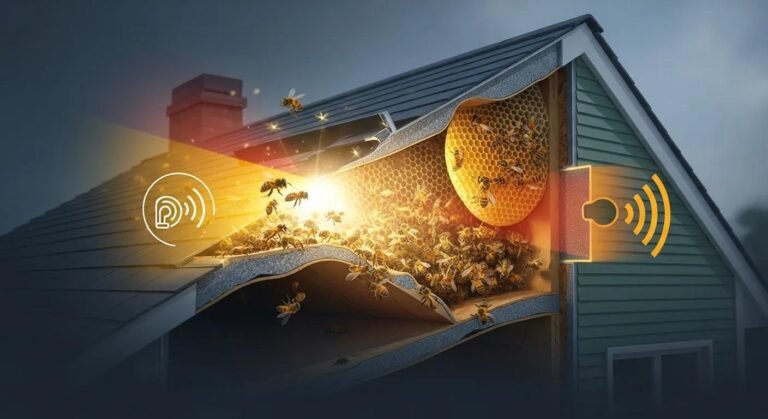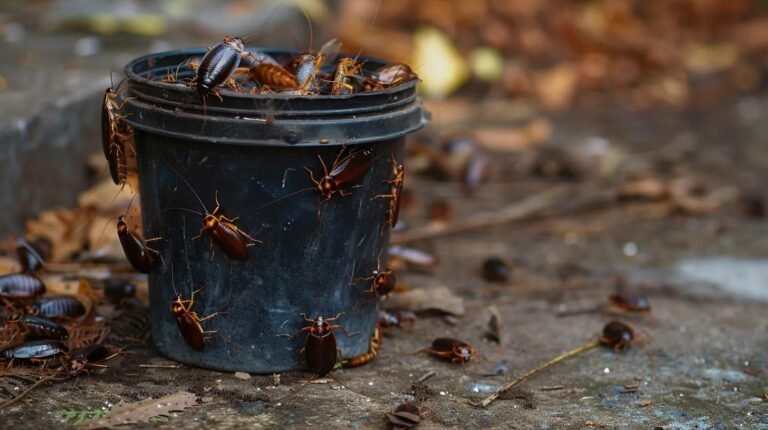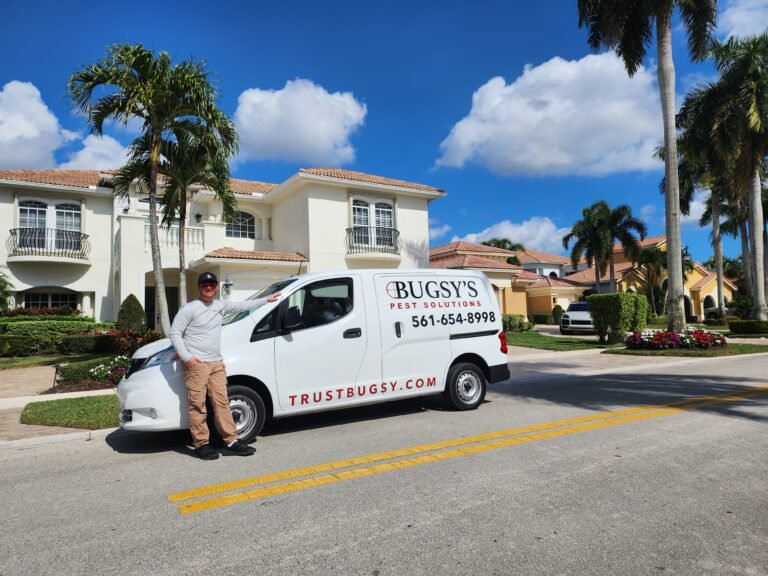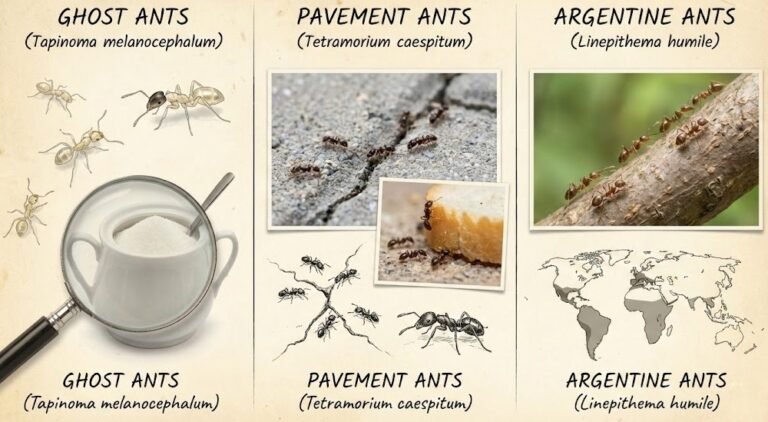How Often Should You Replace Attic Insulation in South Florida Homes?
 Attic insulation plays a crucial role in maintaining comfortable indoor temperatures and controlling energy costs in South Florida’s challenging climate. However, many homeowners don’t realize that insulation has a limited lifespan and can become less effective over time. At Bugsy’s Pest Solutions, we’ve seen firsthand how compromised insulation affects both energy efficiency and pest control in homes throughout Palm Beach and Broward Counties. Understanding when and why to replace your attic insulation can save you thousands in energy costs and prevent serious pest infestations.
Attic insulation plays a crucial role in maintaining comfortable indoor temperatures and controlling energy costs in South Florida’s challenging climate. However, many homeowners don’t realize that insulation has a limited lifespan and can become less effective over time. At Bugsy’s Pest Solutions, we’ve seen firsthand how compromised insulation affects both energy efficiency and pest control in homes throughout Palm Beach and Broward Counties. Understanding when and why to replace your attic insulation can save you thousands in energy costs and prevent serious pest infestations.
Understanding Attic Insulation in South Florida’s Climate
The Unique Challenges of South Florida
South Florida’s subtropical climate creates specific challenges for attic insulation: Climate Factors:- High humidity: 60-80% year-round humidity levels
- Intense heat: Summer temperatures regularly exceed 90°F
- UV exposure: Strong sunlight accelerates material degradation
- Frequent storms: Hurricane season brings moisture and debris
- Minimal temperature variation: Year-round cooling demands
- Concrete block construction common in the region
- Tile roofs create unique ventilation patterns
- Older homes may lack proper vapor barriers
- Pool enclosures and additions affect airflow
How Climate Affects Insulation Lifespan
Accelerated Degradation:- High humidity causes material breakdown
- Heat cycling expands and contracts materials
- Moisture promotes mold and mildew growth
- Salt air (coastal areas) accelerates corrosion
- Warm climate supports year-round pest activity
- Rodents seeking cool spaces damage insulation
- Insects create nesting sites in insulation
- Wildlife entry points allow moisture and debris
Standard Insulation Replacement Timeline
General Replacement Guidelines
Type-Specific Lifespans:- Fiberglass batts: 15-20 years under normal conditions
- Blown-in fiberglass: 15-20 years
- Cellulose: 20-30 years
- Spray foam: 30+ years (but rare in South Florida due to cost)
- Reduce standard timelines by 20-30%
- Fiberglass: 10-15 years typical replacement
- Cellulose: 15-20 years in optimal conditions
- Blown-in: 12-18 years depending on installation quality
Factors That Accelerate Replacement Needs
Environmental Stressors:- Roof leaks or plumbing issues
- Poor attic ventilation
- Storm damage and moisture intrusion
- Pest infestations and contamination
- Improper installation techniques
- Inadequate R-value for climate
- Missing vapor barriers
- Compressed or settled insulation
Signs Your Attic Insulation Needs Replacement
Visual Inspection Indicators
Obvious Problems:- Visible sagging or compressed areas
- Discoloration from moisture or mold
- Pest droppings or nesting materials
- Gaps or thin spots in coverage
- Damaged or deteriorating materials
- Dust or debris falling from vents
- Uneven insulation thickness
- Evidence of air leaks
- Musty odors from attic space
Performance Indicators
Energy Efficiency Problems:- Increasing electricity bills despite consistent usage
- Uneven temperatures throughout the home
- HVAC system running longer cycles
- Difficulty maintaining comfortable temperatures
- Hot spots in certain rooms
- Increased humidity indoors
- Ice buildup on AC vents (rare but possible)
- Drafts or air leaks
Professional Assessment Factors
Thermal Imaging Results:- Heat loss patterns visible
- Air leak identification
- Moisture intrusion points
- Insulation thickness variations
- Current insulation effectiveness
- Comparison to recommended levels
- Age-related degradation assessment
- Performance under load conditions
The Pest Control Connection
How Compromised Insulation Affects Pest Control
Pest Entry Points:- Damaged insulation creates pathways
- Settled insulation exposes entry areas
- Moisture-damaged materials attract pests
- Gaps allow pest movement between spaces
- Rodent droppings and urine contamination
- Insect nesting and breeding sites
- Bacterial and viral pathogen risks
- Allergen accumulation
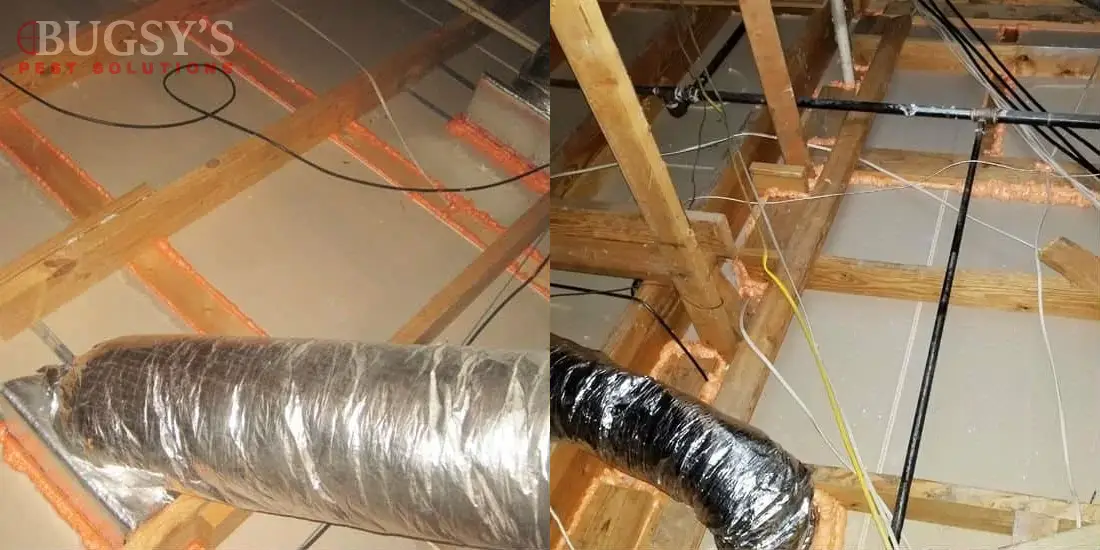
The Bugsy’s Pest Solutions Approach
Our attic sanitation and insulation replacement services address both pest control and energy efficiency: Comprehensive Assessment:- Pest inspection and identification
- Insulation condition evaluation
- Moisture and ventilation assessment
- Contamination level determination
- Complete pest elimination
- Contaminated insulation removal
- Attic sanitization and decontamination
- New insulation installation
- Exclusion and prevention measures
Cost-Benefit Analysis
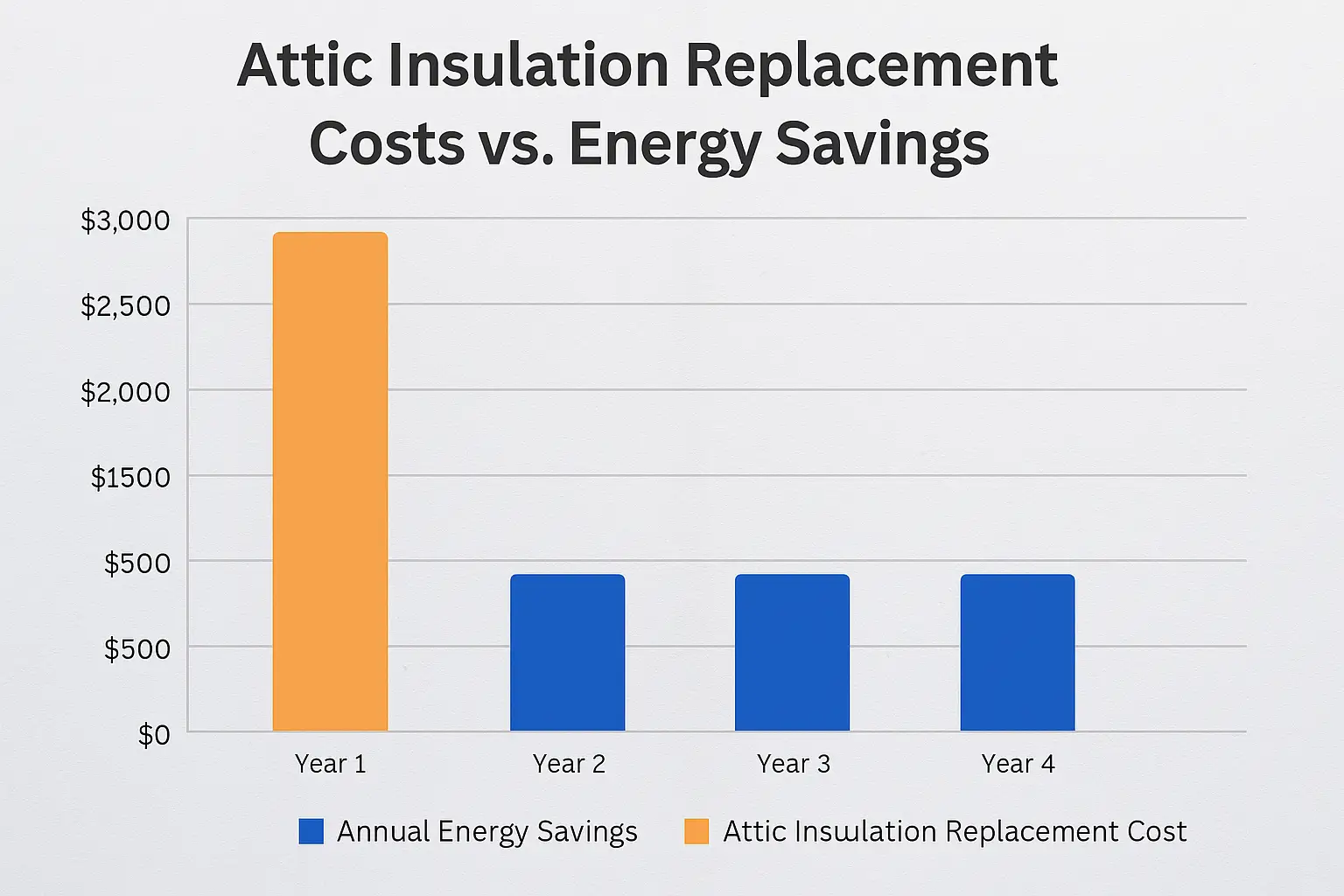
Replacement Costs vs. Energy Savings
Typical Replacement Costs:- Material costs: $1.50-$4.00 per square foot
- Labor costs: $2.00-$6.00 per square foot
- Total project: $3,000-$8,000 for average home
- Additional services: Pest control, sanitation, air sealing
- Cooling costs: 15-25% reduction typical
- Average savings: $300-$800 annually
- Payback period: 3-8 years
- Long-term value: Improved comfort and home value
Hidden Costs of Delayed Replacement
Increased Energy Bills:- 20-40% higher cooling costs
- Reduced HVAC system efficiency
- Potential equipment damage from overwork
- Peak demand charges during summer
- Pest-related health issues
- Mold and allergen exposure
- Indoor air quality problems
- Structural damage from moisture
Insulation Types and Performance
Recommended Insulation for South Florida
Fiberglass Batts:- Pros: Cost-effective, easy installation, good thermal performance
- Cons: Susceptible to moisture, pest damage, settling
- Best for: Budget-conscious homeowners, standard applications
- Pros: Better coverage, fills gaps, good R-value
- Cons: Can settle over time, moisture sensitivity
- Best for: Retrofit applications, irregular spaces
- Pros: Eco-friendly, pest-resistant treatment, good performance
- Cons: More expensive, requires professional installation
- Best for: Long-term investment, pest-prone areas
R-Value Recommendations
Current Florida Building Code:- Minimum R-value: R-30 for attic insulation
- Recommended: R-38 to R-49 for optimal performance
- High-efficiency homes: R-49 to R-60
- Higher R-values provide better energy savings
- Proper installation more important than maximum R-value
- Ventilation must be maintained with higher insulation levels
The Professional Installation Advantage
Why Professional Installation Matters
Technical Expertise:- Proper R-value calculations
- Ventilation requirements
- Vapor barrier installation
- Air sealing techniques
- Even coverage and thickness
- Proper safety equipment use
- Code compliance verification
- Performance testing
Maintenance and Monitoring
Regular Inspection Schedule
Annual Inspections:- Visual condition assessment
- Pest activity monitoring
- Moisture detection
- Performance evaluation
- Post-hurricane season assessment
- Pre-summer preparation
- HVAC system performance review
- Energy usage analysis
Warning Signs to Monitor
Immediate Attention Needed:- Visible pest activity or droppings
- Water stains or moisture
- Musty odors
- Sudden energy bill increases
- Temperature variations between rooms
- HVAC system performance changes
- Humidity level fluctuations
- Comfort complaints from occupants
Making the Replacement Decision
Assessment Checklist
Age and Condition:- Insulation age exceeds recommended lifespan
- Visible damage or deterioration
- Compression or settling issues
- Contamination present
- Rising energy costs
- Comfort problems
- HVAC system strain
- Indoor air quality concerns
- Thermal imaging results
- R-value testing
- Pest inspection findings
- Moisture assessment
Return on Investment
Immediate Benefits:- Reduced energy bills
- Improved comfort
- Better indoor air quality
- Pest elimination
- Increased home value
- Extended HVAC system life
- Reduced maintenance costs
- Health and safety improvements

Serving West Palm Beach, Broward County & Beyond
The Bottom Line: Don’t Wait Until Problems Escalate
In South Florida’s challenging climate, attic insulation replacement is not just about energy efficiency – it’s about maintaining a healthy, comfortable, and pest-free home. The combination of heat, humidity, and year-round pest activity means that insulation needs more frequent attention than in other climates.
Waiting until problems become obvious often means dealing with more extensive damage, higher costs, and potential health risks. Regular assessment and timely replacement protect your investment while ensuring optimal performance.
Concerned about your attic insulation? Contact Bugsy’s Pest Solutions at (561) 654-8998 or visit trustbugsy.com for a comprehensive attic inspection and evaluation. Our integrated approach addresses both pest control and insulation needs, ensuring your home stays comfortable, efficient, and pest-free.
Serving Palm Beach and Broward Counties with professional insulation removal and replacement services since 2022. When it comes to attic health, trust the experts.

